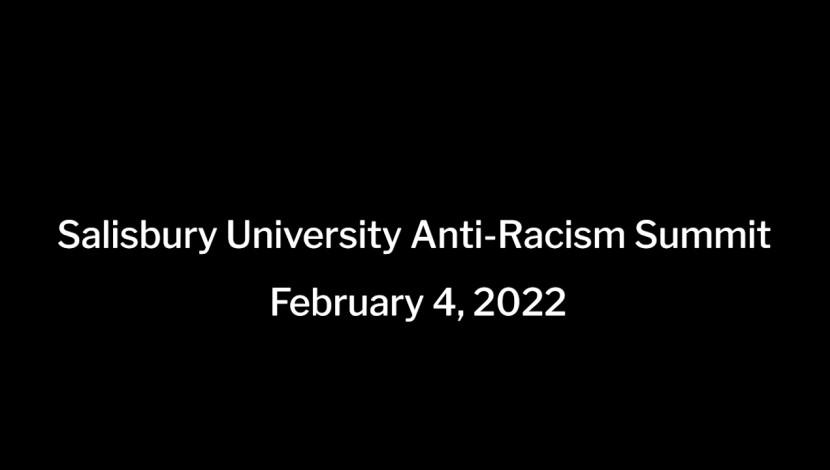Salisbury University Anti-Racism Summit
SU strives to be a leader in addressing structural oppression and institutional racism in many organizations and communities. The Anti-Racism Summit is part of a broader institutional effort to be intentional about talking about racism and its effects on SU and organizational systems in general; teaching concepts and solutions for positive social change that address institutional, structural and interpersonal racism; and doing the necessary and difficult work personally and collectively to improve race relations at SU and in our various communities. The annual summit may include guest presenters, panel discussions, topical sessions, student spoken word, and/or campus updates on diversity and inclusion efforts.
Second Annual Anti-Racism Summit
What Is Critical Race Theory and Why Is It Controversial?
SU’s 2nd Annual Anti-Racism Summit was held virtually on Friday, February 4, 2022, featuring Keynote Speaker Dr. David Stovall, of the Departments of Black Studies and Criminology, Law and Justice at the University of Illinois Chicago.
The Anti-Racism Summit: Part 2 was held Wednesday, April 20, from 11 a.m.-1 p.m. in the Wicomico Room and virtually. More information was shared via SU email to the community.
Impetus and Rationale for the Summit
- This summit connects directly to the University Strategic Plan. Strategy 2.1.4. states: " Expand educational opportunities and training for students that support the development of an understanding of equity, anti-racist behavior, bystander response and diversity."
- Societal and institutional circumstances contribute to the need for the event:
- historical, recent, current, and anticipated social and civil unrest in the United States related to racial injustice, police brutality towards people of color (particularly Black males), social injustice, white privilege, and increases in hate crimes and intimidation related to white nationalism;
- perceived and real concerns among students and employees about historical and current racial injustice and white privilege; and
- discontent among some faculty related to the lack of advancement of a required diversity course integrated into General Education.
- The summit fulfills a recommendation included in the June 2020 Faculty Learning Communities’ (FLC) Anti-Racism Statement.
- Finally, the summit is an appropriate “next step” to building on SU’s 2019’s 400 Years of Resilience Series, which educated the campus community on the effects of racism that sustained slavery in America and the resilience and accomplishments of African Americans post-slavery
Summit Goals
- Continue “courageous conversations” related to race, racism, healing and reconciliation;
- Deepen campus conversations related to concepts of structural, institutional and interpersonal racism; white supremacy and white nationalism in America; and white privilege;
- Develop and/or share strategies for becoming anti-racist individuals and an anti-racist university (check out SU's Anti-Racism Resources); and
- Set the stage for anti-racist activities after the summit.

